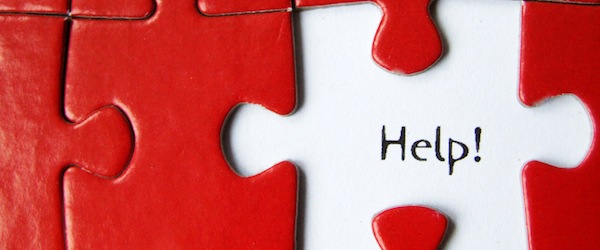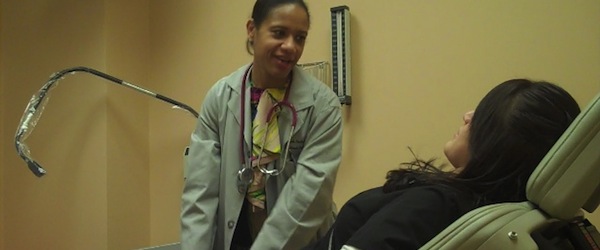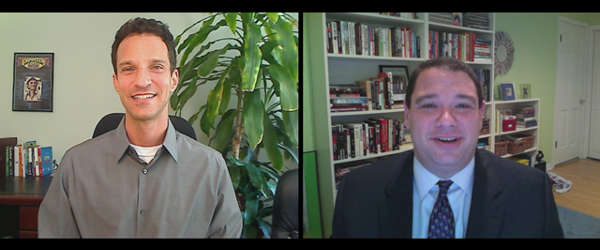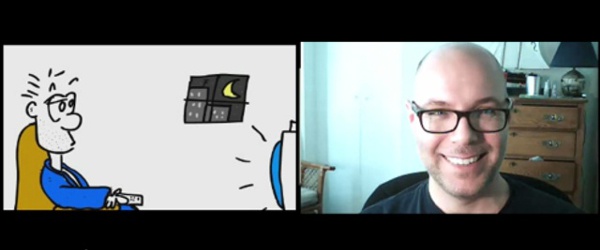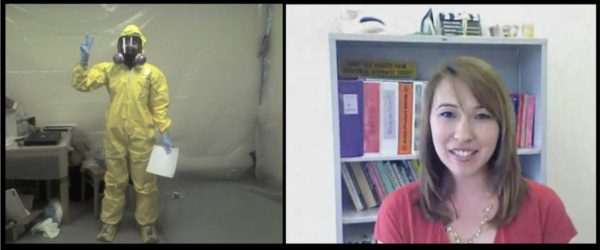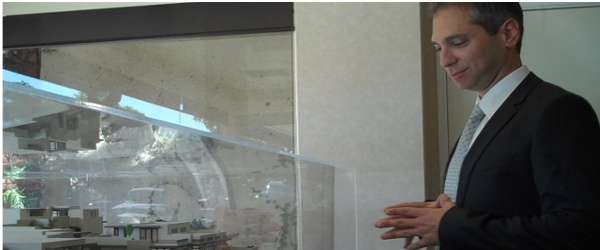African American employment is explored today as we continue to look at workplace diversity issues and their growing role in the recruiting and retainment of employees at companies around America.
 Today’s guest, Dr. Carmen Woods Hollowell, shares her and her family’s compelling stories about African American employment and the black American experience. Dr. Carmen recently shared great advice in our career videos about her OB/GYN career. In today’s video, Dr. Woods Hollowell explains the role that being an African American woman has played in her life and her career, starting with the process of choosing a college. It’s a powerful video.
Today’s guest, Dr. Carmen Woods Hollowell, shares her and her family’s compelling stories about African American employment and the black American experience. Dr. Carmen recently shared great advice in our career videos about her OB/GYN career. In today’s video, Dr. Woods Hollowell explains the role that being an African American woman has played in her life and her career, starting with the process of choosing a college. It’s a powerful video.
Despite the fact that race is still an issue for some , and that we still have a long way to go when it comes to race in America, Dr. Woods Hollowell makes it clear how far we’ve come in a short period of time. Be sure to check out HireDiversity for a list of black professional networking resources. I hope you enjoy watching Dr. Woods Hollowell – she’s been one of my good friends since we were 6 years old! I think she shares a really compelling perspective. Please share your thoughts and your experiences with workplace diversity issues and African American employment in the COMMENTS section below.
TRANSCRIPT OF TODAY’S INTERVIEW
Guest Obstetrician Gynecologist Dr. Carmen Woods Hollowell: So, one of the things that I think is very important to talk about is that when you see me you can’t get past, is that I’m of brown skin. I’m African American and proudly so. And I think that greatly impacts, greatly and dramatically, how you perceive the world and how the world perceives you, b/c that is the first thing that they see. Whether the importance other people put on it or not may or not be there but it is there and it does make you part of who you are. My parents were both born and raised in the south in the 50s and 60s in a very tumultuous time. My grandparents going to college in the 30s and 40s at a time where that, for African Americans, that just wasn’t quite frankly done. These things can’t help but shape who you are and how you see things and be a very motivating factor in how you achieve. I grew up in a predominantly white suburb of Chicago and that only heightened those differences and having a sense of pride instilled from your family was paramount. I went to, the schools may not be known to many of you, they are both historically black colleges and universities or HBCUs for short, and I found that that was an important, an integral part of my development, of what made me who I was because it was one of the few times, if not the only time, where I was seen in my life as a person. Not a black woman or a woman or anything else. We were all black women at Spelman. So you took gender out of the picture, you took race out of the picture, you took economic background out of the picture…it was just how you achieved based on the merits of your schoolwork and the quality of the work that you did. And it was the only time I can say in my life that I’ll ever be judged just on those things: what is the content of my work and nothing else, because it was a fairly level playing field. Now that notwithstanding, I had offers to go everywhere and many colleges had written me letters to come up there and interview. I had received letters from Harvard and Yale; things that were widely recognized by most people worldwide, but my choice is one that I chose that I think if you are in a similar circumstance as mine, you may want to choose because it is such a valuable, very special experience, very unique and very wonderful and very sacred. My medical school experience was very similar. My father went to the same school; again traditionally, historically an African American medical school. That is unique in and of itself. There aren’t many of those. It’s like our Yeshiva. It’s very wonderful. I grew up in a time where things were changing. And so for my children, they’ll never see…in their reality to tell them that there could be an African American President…that’s just what they know. But I grew up at a time where my father wasn’t, who is also a surgeon, he couldn’t walk in the hospital through the front door, he had to play only at certain things, he couldn’t eat at the same cafeteria. My father-in-law had to change clothes with the janitors – he’s a surgeon as well – because they didn’t have a place for a black doctor to change his clothes because they’d never heard of one. They’d never had one – he was their first. My mother, in Memphis, Tennessee, could only go to the zoo on a certain half-day a week. That’s the only day they let little black kids go to the zoo. You couldn’t go any other day. You didn’t dare drink from the same water fountain. I’m just talking about walking through the doors of the public city Memphis Metropolitan Zoo. So these things help to shape who you are, help to shape your compassion. I think that all the life experiences we bring make us better people. I think that’s, quite frankly, a big push for diversity…to have people who don’t necessarily look like you do different things. It inextricably makes you who you are and can’t help but mold you for the better.
(c) 2010 Careers Out There
RELATED POSTS
Workplace Diversity Issues
OBGYN Career: “A Birthday Party Every Single Day” (Interview)
Hispanic Recruitment (Interview)
career articles, choosing a college, diversity, general career advice, medical jobs
 Today’s guest, Dr. Carmen Woods Hollowell, shares her and her family’s compelling stories about African American employment and the black American experience. Dr. Carmen recently shared great advice in our career videos about her OB/GYN career. In today’s video, Dr. Woods Hollowell explains the role that being an African American woman has played in her life and her career, starting with the process of choosing a college. It’s a powerful video.
Today’s guest, Dr. Carmen Woods Hollowell, shares her and her family’s compelling stories about African American employment and the black American experience. Dr. Carmen recently shared great advice in our career videos about her OB/GYN career. In today’s video, Dr. Woods Hollowell explains the role that being an African American woman has played in her life and her career, starting with the process of choosing a college. It’s a powerful video.
